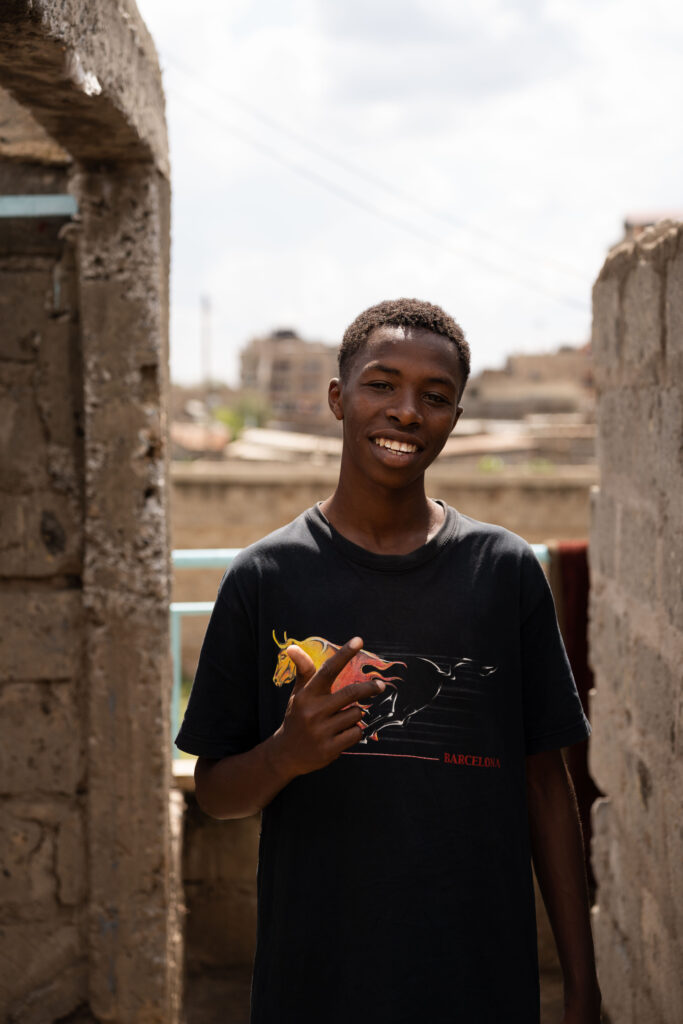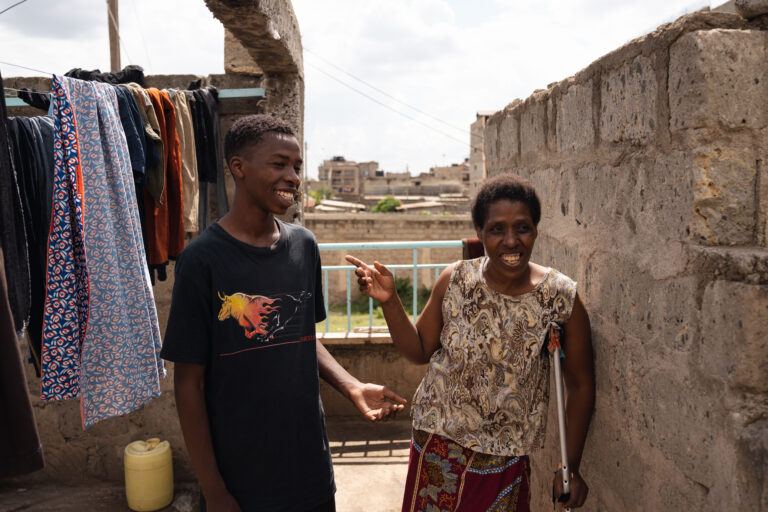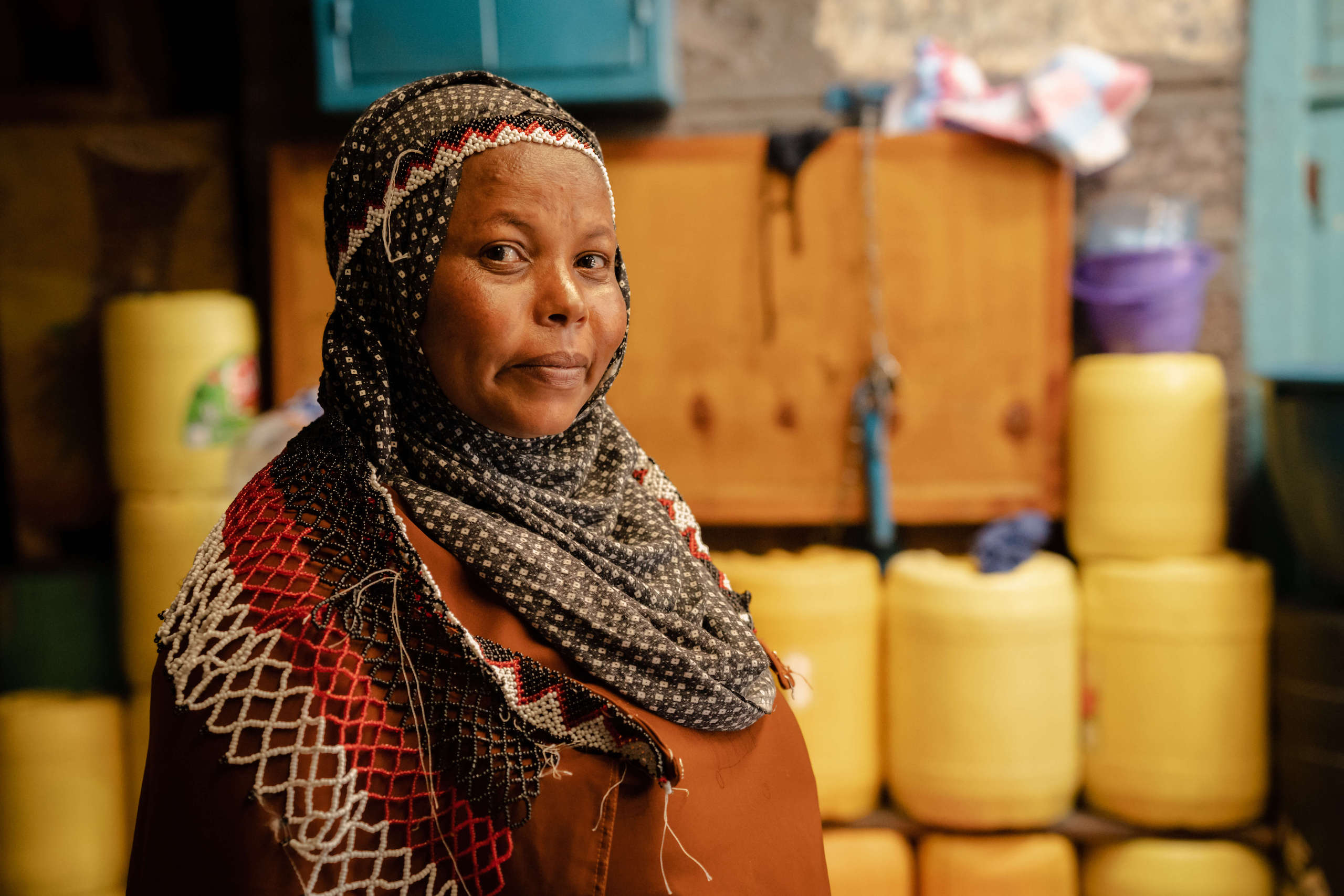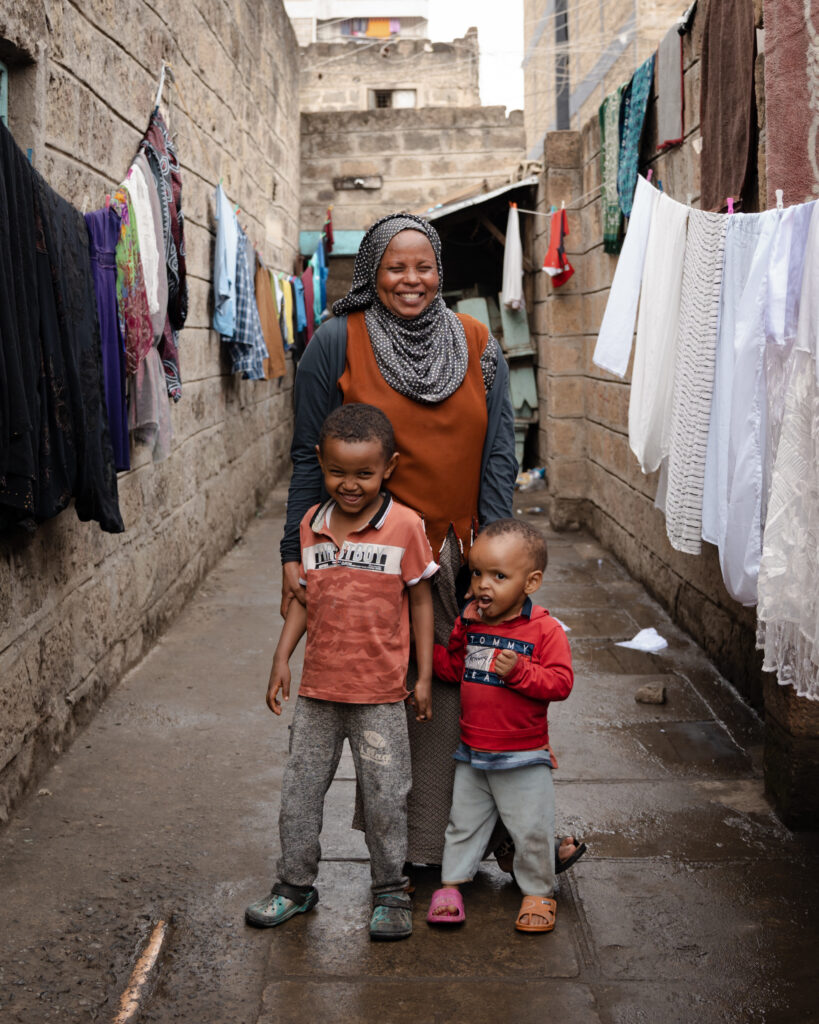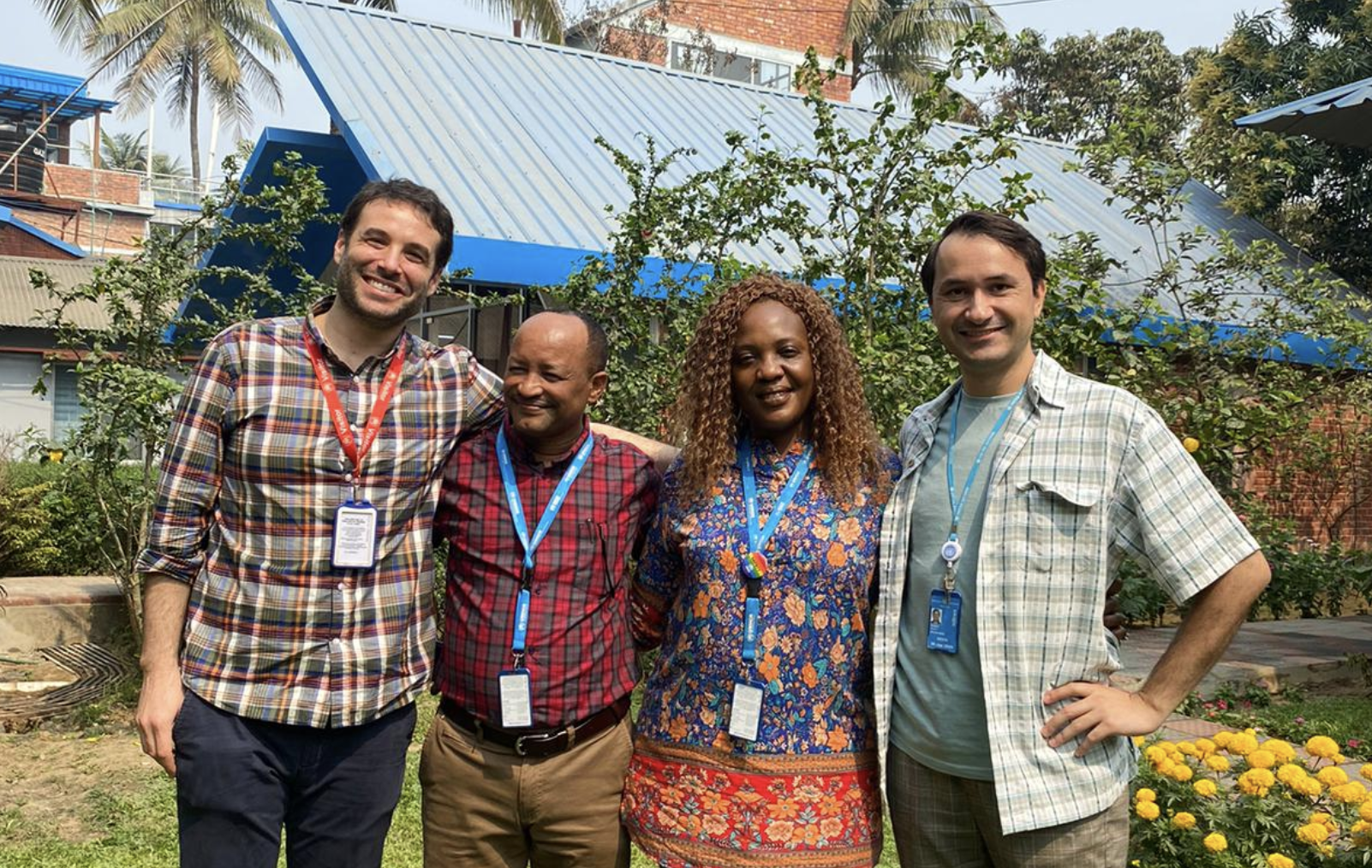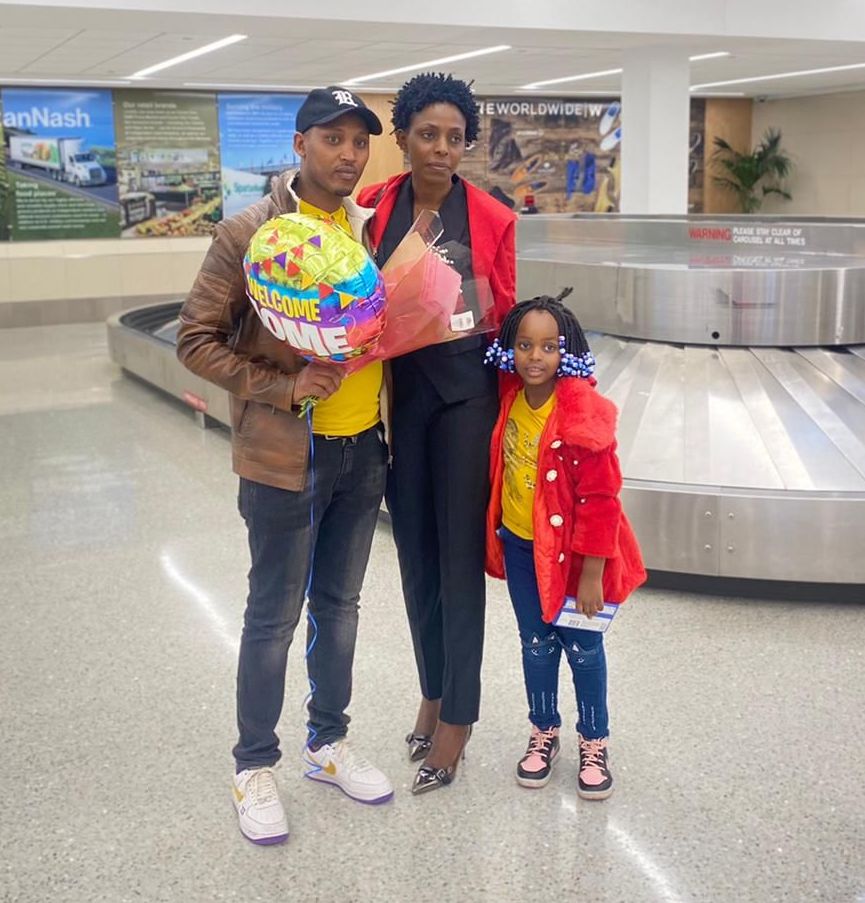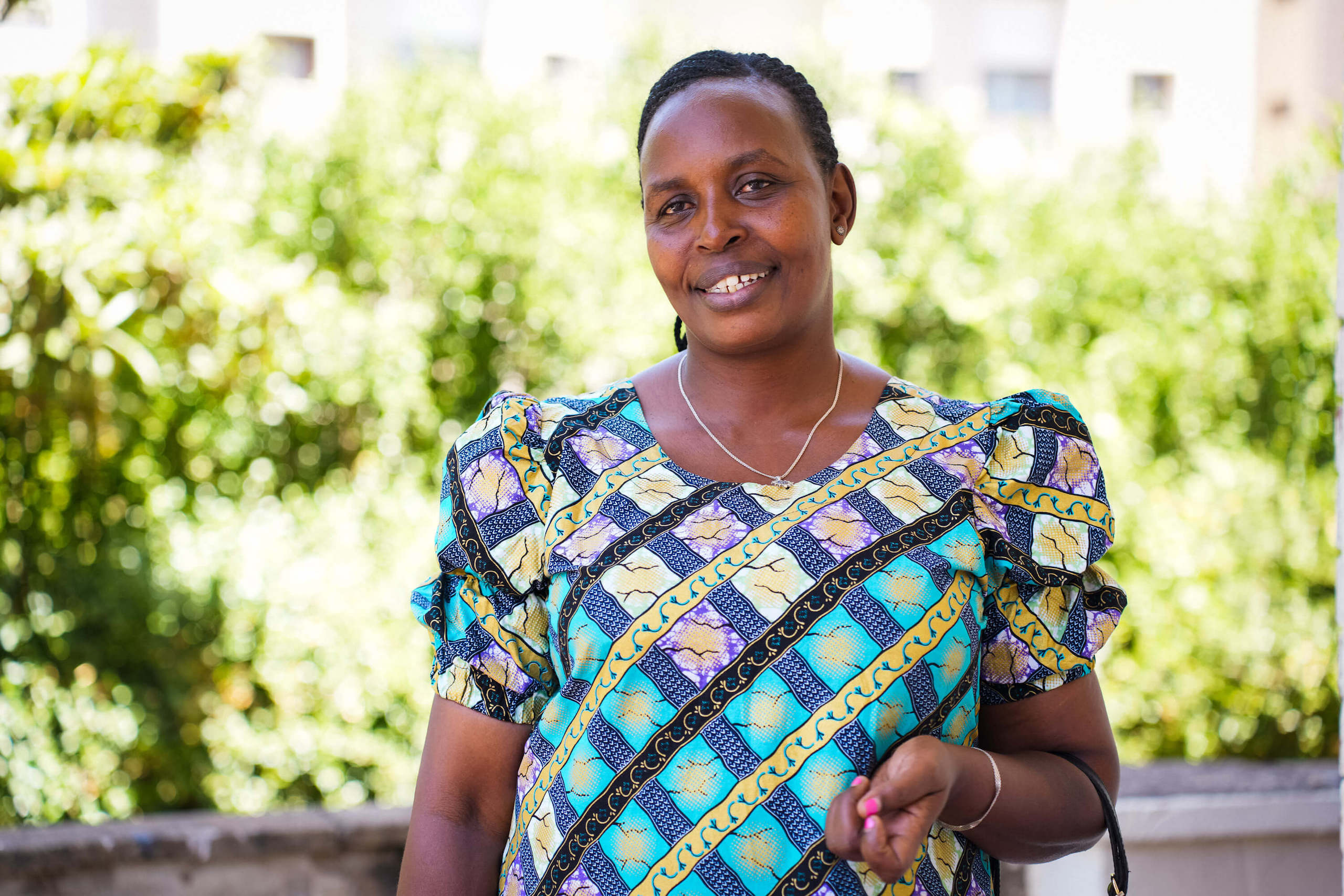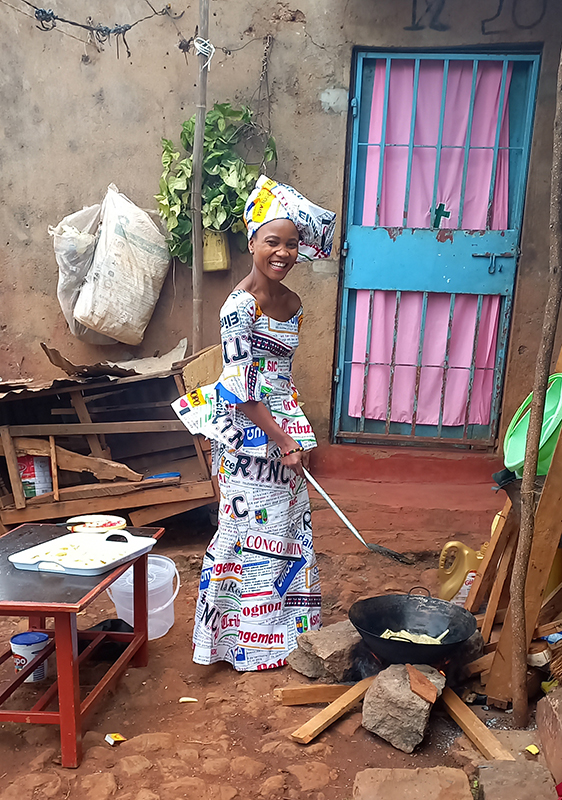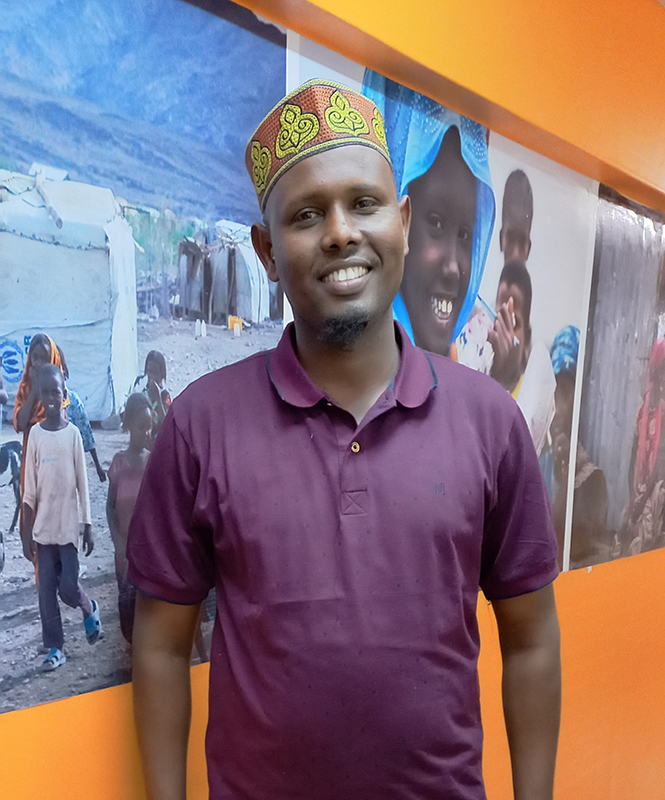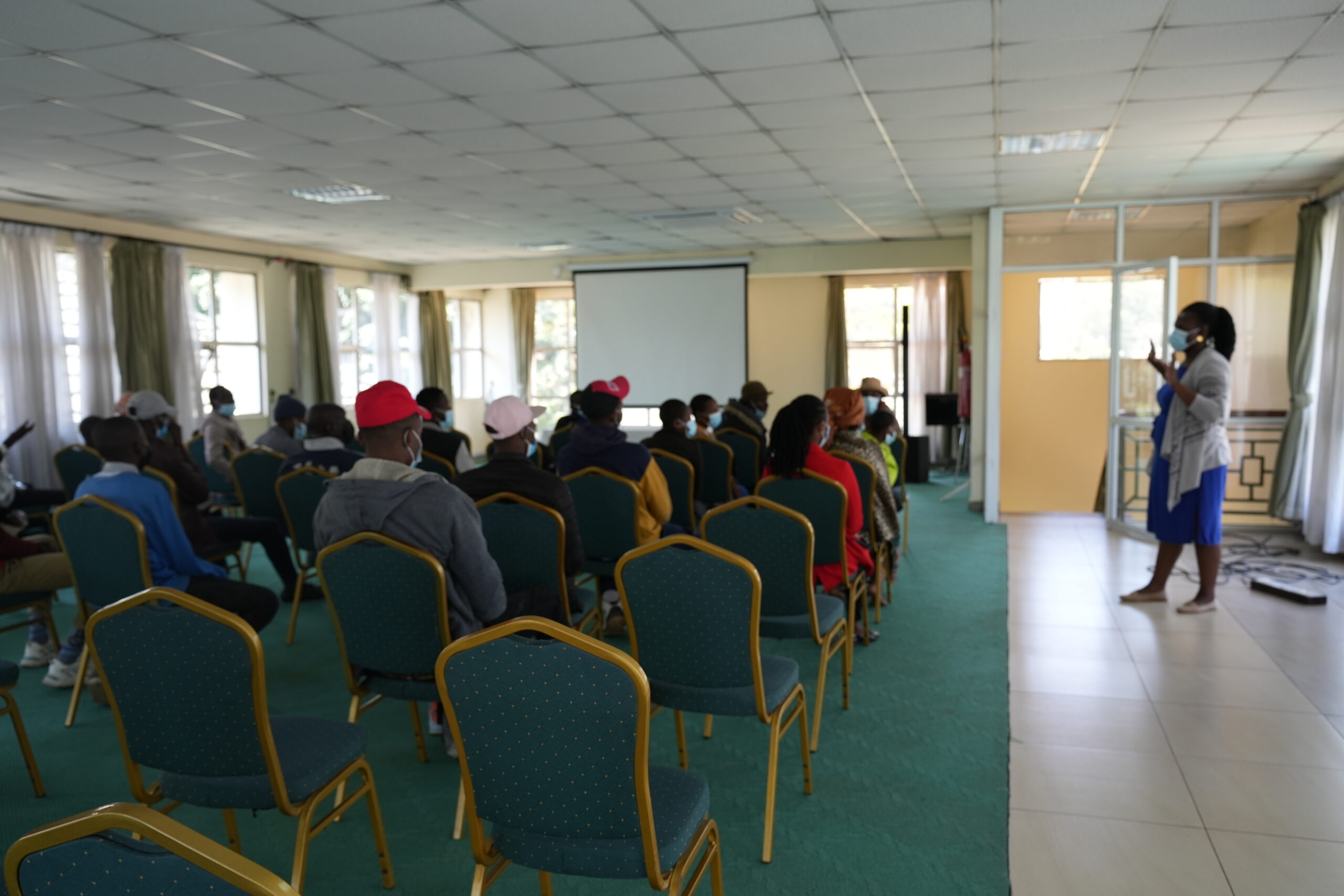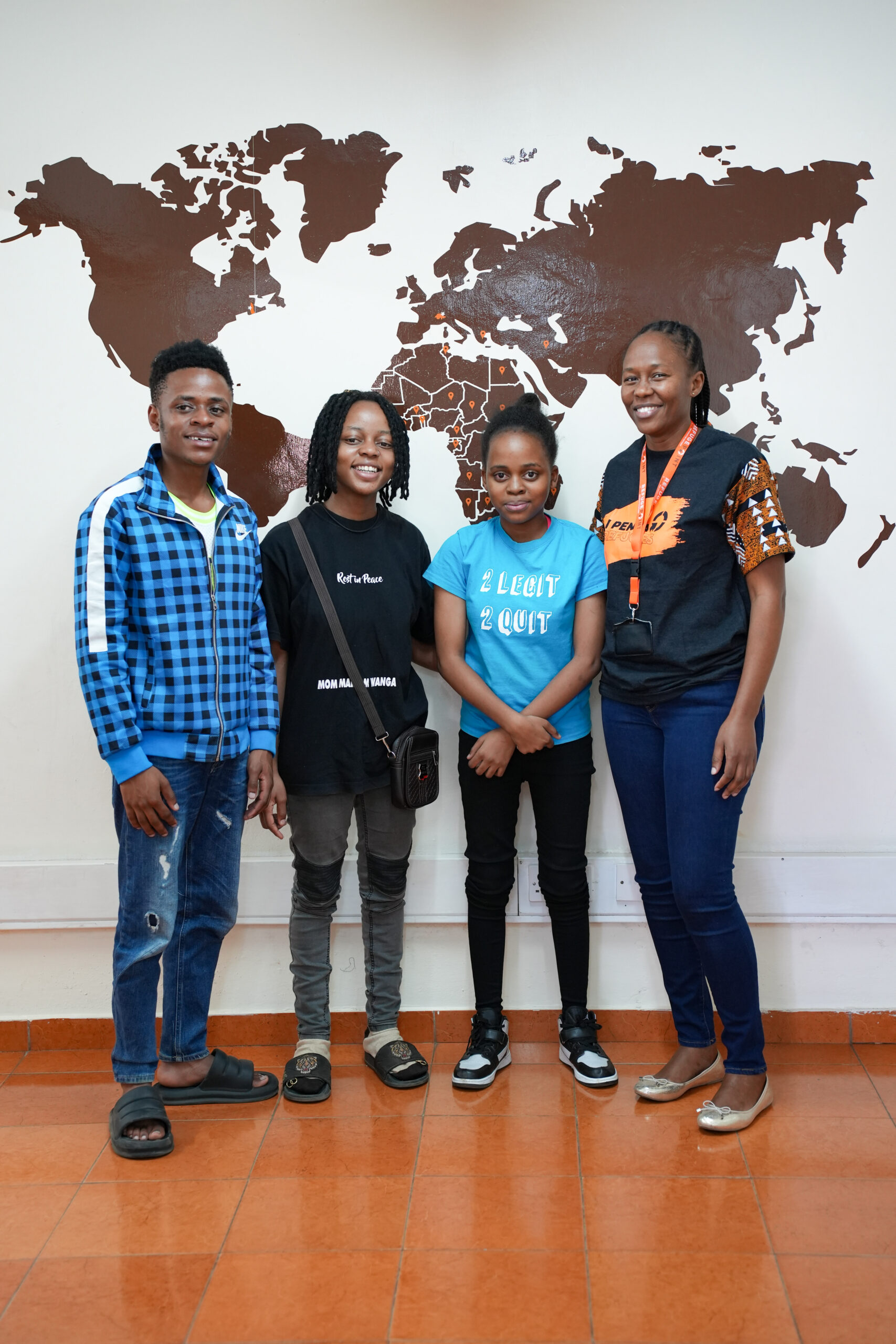
In October 2022, Henry, a refugee from Congo, received a phone call that forever changed his life and the lives of his two young sisters, Daniella and Prisca – they were finally going to be resettled in Canada. After their mother Wanga passed away in 2020, Henry and his sisters were orphaned, and Henry took on the responsibility of supporting Daniella and Prisca, who were just 17 and 9 years old at the time.
“This opportunity is a big one for us,” said Henry. “There are so many people searching for this opportunity. Life was not easy. Working as a hairdresser to provide for my siblings was tough,” shared Henry. “I would often wonder: What is their future? What is our future? But this resettlement means a lot to us,” said Henry. “I hope to get a job so I can earn a decent living. My dream is to keep us together.”
When Henry received the phone call—asking him to report to the Canadian embassy for a visa interview, he was in disbelief. It had been over five years since he and his family had completed their resettlement interview with RefugePoint in 2017. “I remember I owed Safaricom (the phone company) 350 shillings (about $3 USD) for airtime (talk time),” said Henry. “I only had 500 shillings (about $4) in my pocket. I decided to pay the credit so that I could call my sister to inform her of the good news.”
“He was so excited he couldn’t keep it to himself,” added Daniella. “He called immediately to tell me the news and I couldn’t believe it!” said Daniella smiling. Henry and his siblings were going to live their mothers wish of giving them a better life. Their mother’s desire to keep them together and provide a better life for them was strong. Henry was just two years old when he and his family were forced to flee their home in Congo.
In the chaos of fleeing, Henry and his mother were separated from Daniella. Daniella and her grandmother ended up seeking refuge in Kenya soon after they fled, while Henry and his mother arrived years later, in 2015. Henry, his mother, and his young sister Prisca lived in a local Congolese-led church for many weeks before they were able to get their own place with support from RefugePoint. “Our mother met one of her old friends from Congo who introduced us to RefugePoint in 2016. We were given all the services—counseling, food support, school fees, a business grant, medical support, everything!” Henry shared. Throughout this time, Henry and his mother and sister had no idea where Daniella was.
“My mother had been asking around for Daniella for a while. One day, a friend of hers said, ‘I know a Congolese grandmother who is living with her granddaughter who resembles you. Maybe I should link you two, perhaps she could be your daughter,’ recalled Henry. When that day arrived, Henry, his mother and young Prisca set out for a Congolese church in Kawangware, not knowing what to expect.
“My mother saw them and started crying,” said Henry. “I was staring in disbelief, asking, ‘so, this is my sister?’ recalled Henry. “I last saw my sister when I was two years old. I couldn’t recognize her. She didn’t even know she had a young sister.”
“It was overwhelming!” Daniela told us of the reunion. “We had not seen each other for a long time. Henry was all grown up and so was I,” said Daniella. “Seeing my mom for the first time was a big joy,” Daniella said, smiling. “When I looked at her I saw myself because my mom and I used to resemble each other. I had missed that motherly love. She hugged me so tight,” said Daniella. “I used to stay with my grandma and I needed a sibling. So, when they came I was very happy because I was no longer bored.”
After reuniting with Daniella, Henry and his family all moved into one house. RefugePoint supported Henry and his siblings to re-enroll into primary school to continue their education. However, due to the language barrier, Henry dropped out of school and began training in hairdressing and nail art. RefugePoint granted Henry’s mother $280 (KSH 40,000) which she used to start a business selling local foods. When Wanga passed away in September 2020, Henry took on the responsibility of caring for his young sisters. Upon completing her secondary education, Daniella, with support from RefugePoint, enrolled in computer studies.
Despite the fact that Henry was doing everything in his power to support his family, he had trouble finding work, and life in Nairobi was not easy for the siblings. “Being orphans in a foreign country is tough,” Daniella shared. “At least we have that hundred percent assurance that things will be okay compared to how we were here (in Nairobi).”
In February 2023, Henry, Prisca, and Daniella were resettled to Canada.
Above, Henry (left) and his siblings, Daniella and Priscah (center) pose for a photo with their former case manager, Carol Muli (right), when they visited the RefugePoint Offices in Nairobi to bid staff goodbye. ©RefugePoint/Diana Karua

In October 2022, Henry, a refugee from Congo, received a phone call that forever changed his life and the lives of his two young sisters, Daniella and Prisca – they were finally going to be resettled in Canada. After their mother Wanga passed away in 2020, Henry and his sisters were orphaned, and Henry took on the responsibility of supporting Daniella and Prisca, who were just 17 and 9 years old at the time.
“This opportunity is a big one for us,” said Henry. “There are so many people searching for this opportunity. Life was not easy. Working as a hairdresser to provide for my siblings was tough,” shared Henry. “I would often wonder: What is their future? What is our future? But this resettlement means a lot to us,” said Henry. “I hope to get a job so I can earn a decent living. My dream is to keep us together.”
When Henry received the phone call—asking him to report to the Canadian embassy for a visa interview, he was in disbelief. It had been over five years since he and his family had completed their resettlement interview with RefugePoint in 2017. “I remember I owed Safaricom (the phone company) 350 shillings (about $3 USD) for airtime (talk time),” said Henry. “I only had 500 shillings (about $4) in my pocket. I decided to pay the credit so that I could call my sister to inform her of the good news.”
“He was so excited he couldn’t keep it to himself,” added Daniella. “He called immediately to tell me the news and I couldn’t believe it!” said Daniella smiling. Henry and his siblings were going to live their mothers wish of giving them a better life. Their mother’s desire to keep them together and provide a better life for them was strong. Henry was just two years old when he and his family were forced to flee their home in Congo.
In the chaos of fleeing, Henry and his mother were separated from Daniella. Daniella and her grandmother ended up seeking refuge in Kenya soon after they fled, while Henry and his mother arrived years later, in 2015. Henry, his mother, and his young sister Prisca lived in a local Congolese-led church for many weeks before they were able to get their own place with support from RefugePoint. “Our mother met one of her old friends from Congo who introduced us to RefugePoint in 2016. We were given all the services—counseling, food support, school fees, a business grant, medical support, everything!” Henry shared. Throughout this time, Henry and his mother and sister had no idea where Daniella was.
“My mother had been asking around for Daniella for a while. One day, a friend of hers said, ‘I know a Congolese grandmother who is living with her granddaughter who resembles you. Maybe I should link you two, perhaps she could be your daughter,’ recalled Henry. When that day arrived, Henry, his mother and young Prisca set out for a Congolese church in Kawangware, not knowing what to expect.
“My mother saw them and started crying,” said Henry. “I was staring in disbelief, asking, ‘so, this is my sister?’ recalled Henry. “I last saw my sister when I was two years old. I couldn’t recognize her. She didn’t even know she had a young sister.”
“It was overwhelming!” Daniela told us of the reunion. “We had not seen each other for a long time. Henry was all grown up and so was I,” said Daniella. “Seeing my mom for the first time was a big joy,” Daniella said, smiling. “When I looked at her I saw myself because my mom and I used to resemble each other. I had missed that motherly love. She hugged me so tight,” said Daniella. “I used to stay with my grandma and I needed a sibling. So, when they came I was very happy because I was no longer bored.”
After reuniting with Daniella, Henry and his family all moved into one house. RefugePoint supported Henry and his siblings to re-enroll into primary school to continue their education. However, due to the language barrier, Henry dropped out of school and began training in hairdressing and nail art. RefugePoint granted Henry’s mother $280 (KSH 40,000) which she used to start a business selling local foods. When Wanga passed away in September 2020, Henry took on the responsibility of caring for his young sisters. Upon completing her secondary education, Daniella, with support from RefugePoint, enrolled in computer studies.
Despite the fact that Henry was doing everything in his power to support his family, he had trouble finding work, and life in Nairobi was not easy for the siblings. “Being orphans in a foreign country is tough,” Daniella shared. “At least we have that hundred percent assurance that things will be okay compared to how we were here (in Nairobi).”
In February 2023, Henry, Prisca, and Daniella were resettled to Canada.
Above, Henry (left) and his siblings, Daniella and Priscah (center) pose for a photo with their former case manager, Carol Muli (right), when they visited the RefugePoint Offices in Nairobi to bid staff goodbye. ©RefugePoint/Diana Karua
